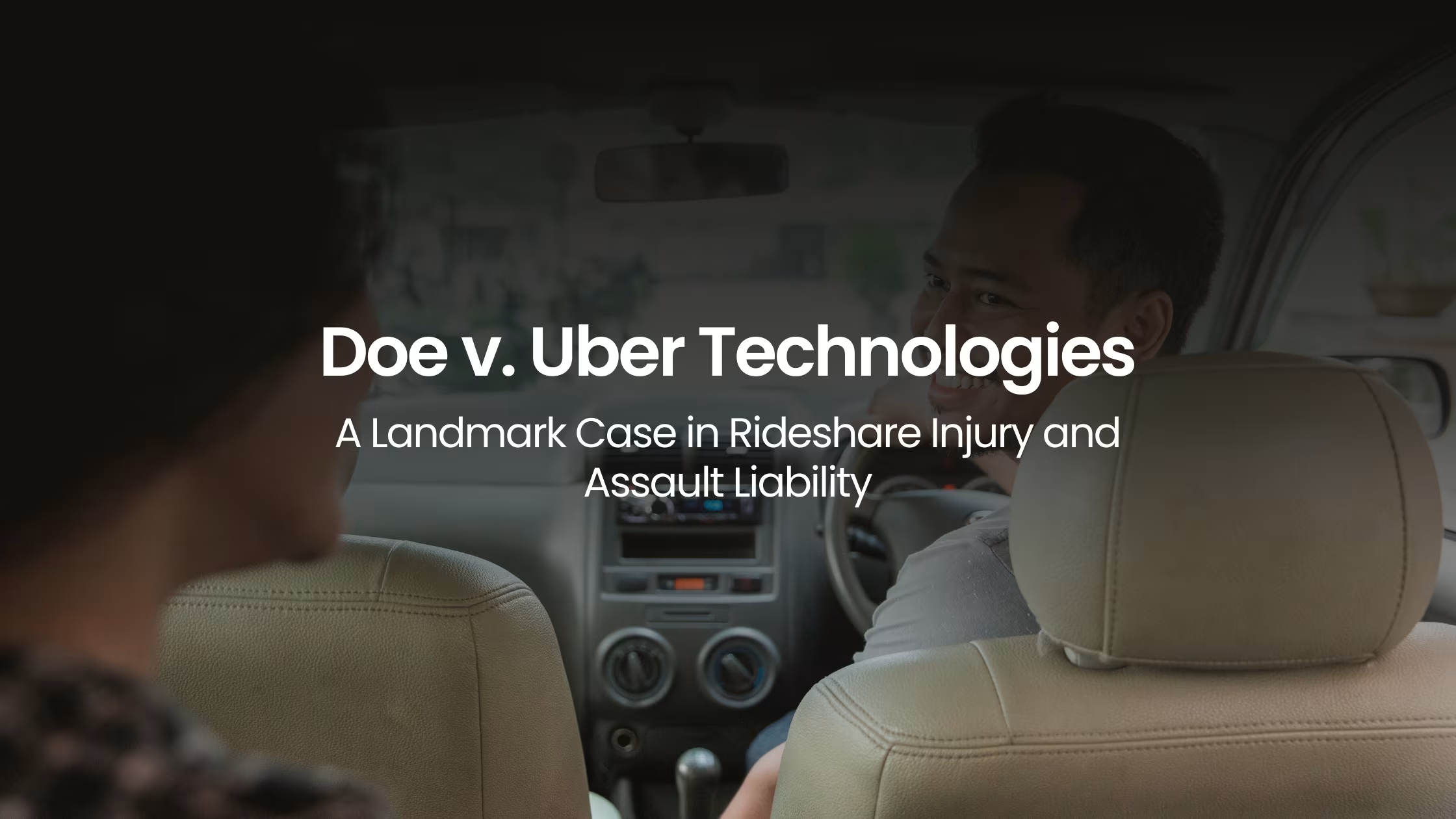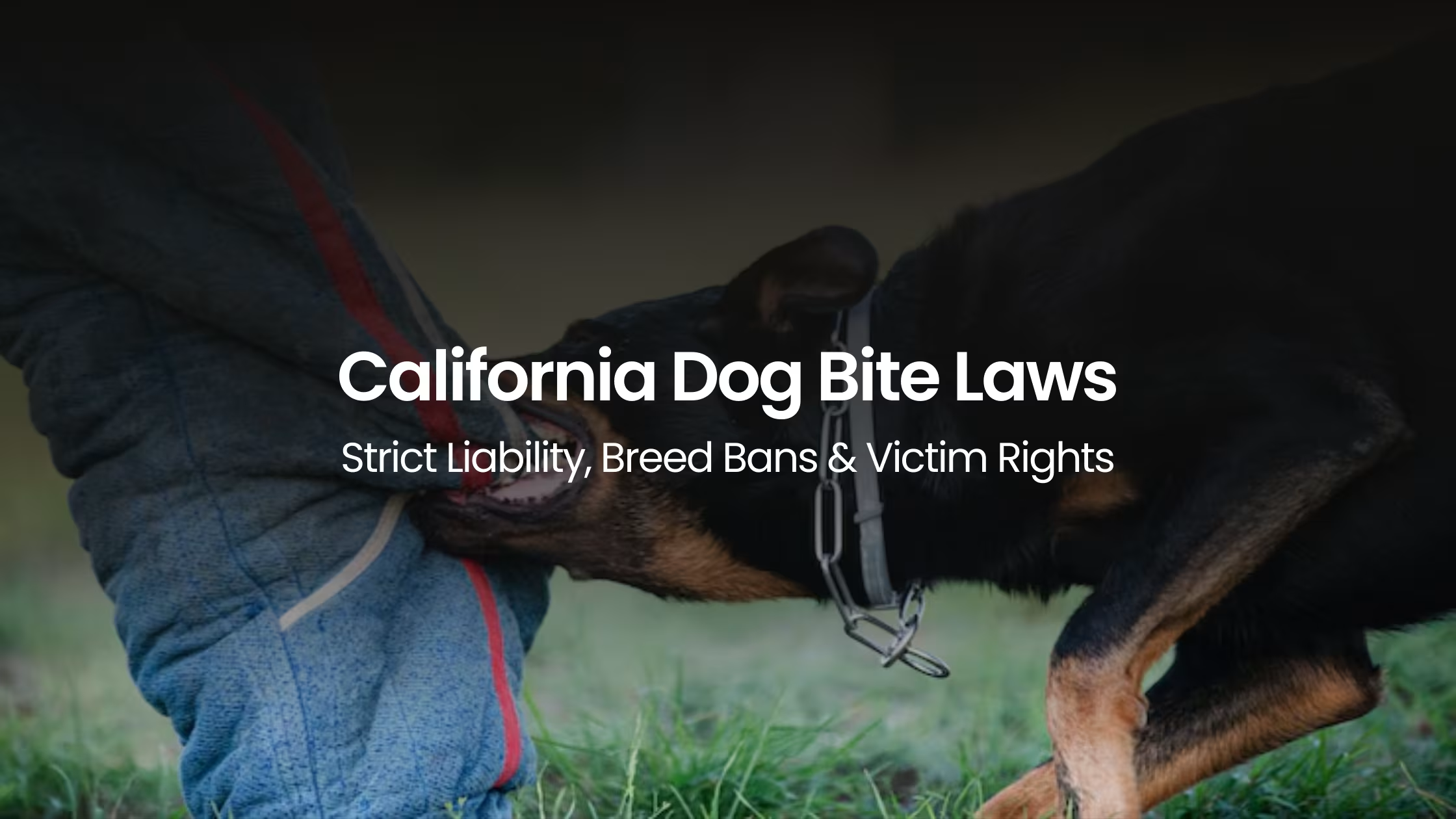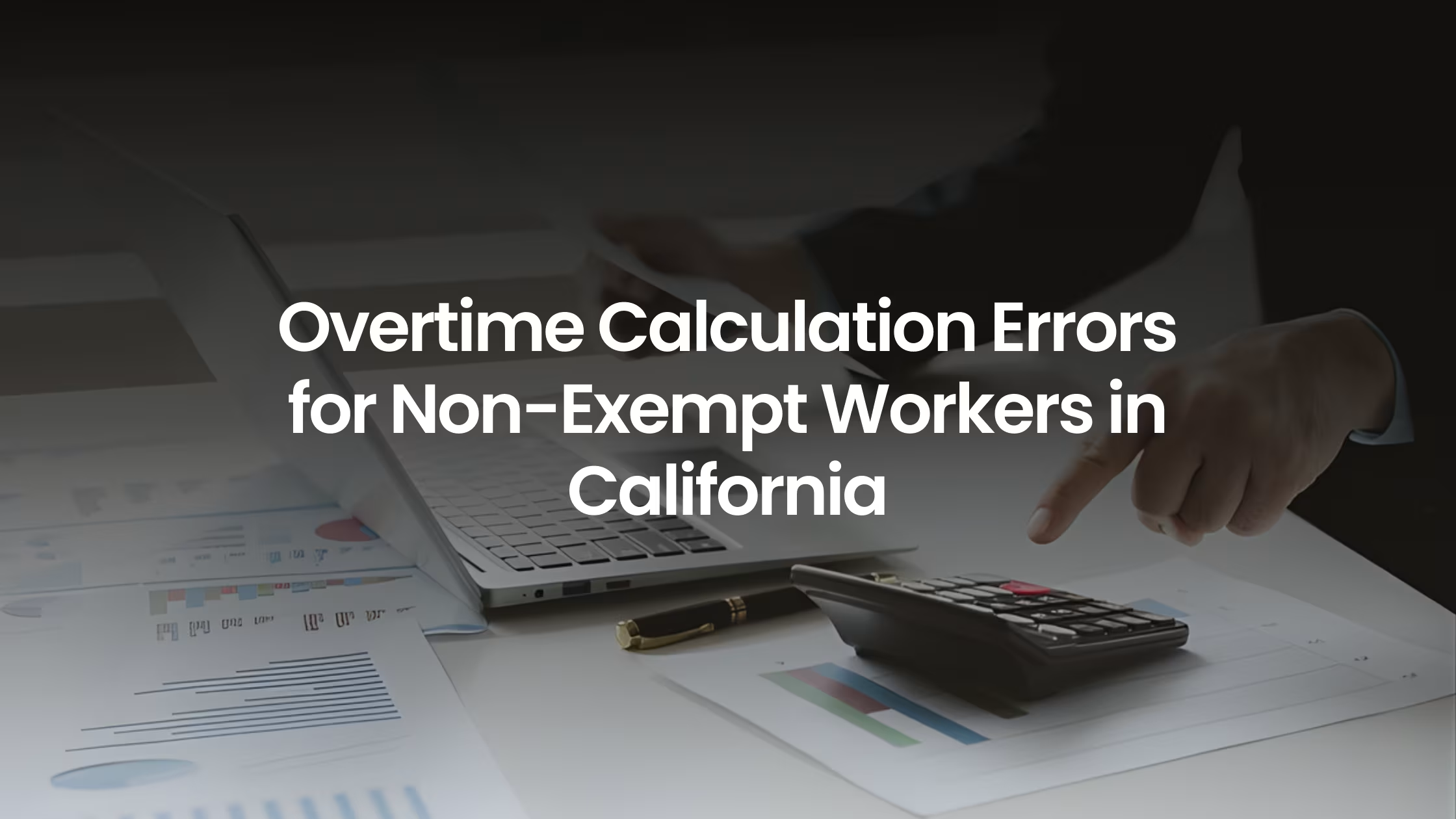The explosive growth of Uber and Lyft has revolutionized urban mobility. But behind the convenience of rideshare services lies a critical question: Who is responsible when a passenger is injured or worse assaulted? This blog dives deep into the Doe v. Uber Technologies case, a pivotal legal battle representing hundreds of victims who claimed Uber failed to protect them.
This high-profile lawsuit has raised critical concerns about safety protocols, liability, and what victims can do to protect themselves legally. As a leading personal injury attorney in California, I’ve seen firsthand how challenging these cases can be. Here's everything you need to know backed by verified facts, expert opinion, and actionable legal advice.
Case Overview: Doe v. Uber Technologies, Inc.
- Filed: July 2022
- Jurisdiction: San Francisco, California
- Plaintiffs: Over 550 women (initially 550+ cases, growing over time)
- Allegations: Sexual assault, rape, harassment by Uber drivers
- Defendant: Uber Technologies, Inc.
- Legal Counsel for Plaintiffs: Slater Slater Schulman LLP
- Nature of Suit: Negligence, failure to implement adequate safety measures
The complaint accused Uber of knowingly placing profits over passenger safety. The plaintiffs argued that the company:
- Ignored reports of prior sexual misconduct
- Lacked rigorous background checks
- Failed to implement adequate driver monitoring systems
Key Legal Points in the Case
This case challenges the classification of Uber drivers as independent contractors a legal gray area in personal injury claims involving rideshare apps.
What Victims Must Understand About Their Rights
If you’ve been harmed in a rideshare accident or assaulted during an Uber or Lyft ride, you may have grounds for a civil lawsuit. Your legal options could include:
- Filing a civil claim for damages (medical expenses, emotional trauma, lost income)
- Pursuing Uber’s $1 million insurance policy (applicable when the ride is in progress)
- Seeking additional coverage through personal injury protection (PIP), if applicable
- Working with a specialized personal injury protection lawyer
Why These Cases Are Legally Complex
Victims often face several barriers:
- Arbitration clauses in Uber’s terms of service
- Difficulty proving negligence by a third-party contractor
- Hesitation due to trauma or stigma
This is why partnering with a seasoned personal claims lawyer or personal injury protection lawyer becomes essential.
Professional Perspective from Our Legal Team
At Ladva Law Firm, we help victims navigate the legal labyrinth of rideshare liability. Although we did not handle the Doe v. Uber case, our extensive experience with personal injury claims in California allows us to advocate effectively for our clients. We understand:
- How to hold rideshare companies accountable
- What evidence courts look for
- The nuances of working with insurance providers
- How to maximize your personal injury protection coverage
We also recognize the emotional toll such cases take and offer compassionate, confidential legal representation every step of the way.
Understanding Rideshare Liability: Table Summary
Case Outcome and Ongoing Impact
Although the Doe v. Uber lawsuits remain active with many settlements confidential, the case:
- Prompted Uber to release a safety transparency report
- Introduced new safety features like in-app audio recording and ride check-ins
- Raised regulatory scrutiny across states
But many say it’s not enough. For victims, justice is still being fought case by case and every successful claim creates pressure for more accountability.
Conclusion: Your Legal Rights Matter
The Uber sexual assault lawsuits demonstrate that large corporations must answer for safety failures. If you’ve been injured or harmed during a rideshare ride, know that you don’t have to face it alone.
Our team at Ladva Law Firm a trusted name in San Francisco and across California has helped numerous clients get the justice they deserve.
Need Legal Help After a Rideshare Incident?
Contact us today for a free
Let a dedicated personal injury protection lawyer review your case and explain your options.






